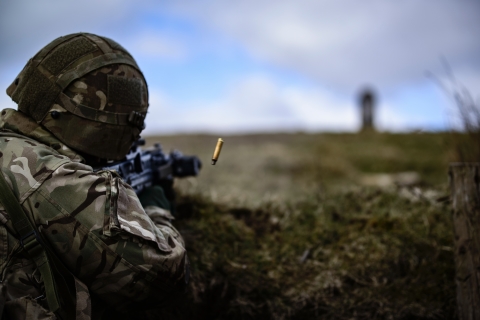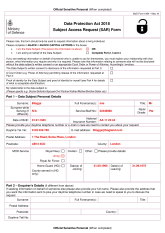|
ROYAL BRITISH LEGION (RBL): VETERANS
HEARING FUND
Noise
in the Military
 Many sources of
potentially damaging noise have long existed in military settings. Some
of these sources include weapons systems (e.g., Side arms, rifles,
machine guns, mortars, artillery pieces, and rockets), wheeled and
tracked vehicles, fixed- and rotary-wing aircraft, ships, and
communications devices. Service members may encounter these noise
sources through training, standard military operations and combat.
Exposure to combat-related noise may be unpredictable in onset and
duration. These episodes may be sudden small arms engagements, IED or
explosion in near proximity or sustained loud noise environments.
Servicemen may also be exposed to hazardous noise through activities
that are not unique to the military environment, including various
engineering, industrial, construction, or maintenance tasks. Many sources of
potentially damaging noise have long existed in military settings. Some
of these sources include weapons systems (e.g., Side arms, rifles,
machine guns, mortars, artillery pieces, and rockets), wheeled and
tracked vehicles, fixed- and rotary-wing aircraft, ships, and
communications devices. Service members may encounter these noise
sources through training, standard military operations and combat.
Exposure to combat-related noise may be unpredictable in onset and
duration. These episodes may be sudden small arms engagements, IED or
explosion in near proximity or sustained loud noise environments.
Servicemen may also be exposed to hazardous noise through activities
that are not unique to the military environment, including various
engineering, industrial, construction, or maintenance tasks.
Hearing
Loss
When
hearing loss is known to have occurred as a result of a noise exposure,
it has generally been thought that hearing loss for pure tones does not
worsen following the cessation of a given noise exposure. However,
there are no longitudinal data from humans who developed noise-induced
hearing loss in early adulthood and were followed into their 60s, 70s,
or 80s. Data from a few longitudinal studies of older adults, which
differed in the way prior noise exposure was documented, have not
produced conclusive results. There is some research that shows an
accelerated loss with aging when combined with noise induced hearing
loss. Hearing loss is also associated with Tinnitus, more information
about tinnitus can be found here
Most likely military hearing conservation programs, dating from the
late 1970s, were not adequate to protect the hearing of service
members. Hearing conservation activities from World War II through the
1970s would have been even less adequate to protect the hearing of
service members than the programs in place since the late 1970s,
because only early hearing protection devices of limited effectiveness
were available and mandatory hearing conservation measures were only
fully implemented later.
Medical
Records
 Medical
records for veterans with military service should have documented
audiometric testing at entrance into the Armed Forces and periodically
throughout their military career as PULHEEMS assessments and on
discharge. Additionally some
courses would necessitate an audiogram and this would also be
recordedin the FMED 4/Medical Record.
Any change to the H grading should have been documented and
investigated. If the Hearing Conservation Program has been carried out
correctly then Screening Audiometry should have been perfored every
year or every two years. For a period of time pre and post deployment
audiograms were also carried out Medical
records for veterans with military service should have documented
audiometric testing at entrance into the Armed Forces and periodically
throughout their military career as PULHEEMS assessments and on
discharge. Additionally some
courses would necessitate an audiogram and this would also be
recordedin the FMED 4/Medical Record.
Any change to the H grading should have been documented and
investigated. If the Hearing Conservation Program has been carried out
correctly then Screening Audiometry should have been perfored every
year or every two years. For a period of time pre and post deployment
audiograms were also carried out
A
Servicemans medical record is available once they leave the Forces.
This can be done as a form of Freedom of Information request on a
Specific Form and can be downloaded directly from the Government website (Here).
The information that you request is related to your hearing and an
example of how to fill the form out and what to request can be seen in
the example form to the left (Obviously for Army - Amend as
necessary!).
The
updated SAR form requests either Drivers Licence or a Passport AND
another document to confirm a home address. Be aware this is the
address they will send any correspondence to.
The form is filled out by the
Serviceman and then sent to the respective Records Office given on the
actual form. The length of time to receive the records depends on how
busy the department is and what records are requested. Requesting a
complete medical record could involve scanning/copying 100+ pages so
will take time. Requesting just audiometric data, PULHHEEMS
assessments, entry/discharge medicals and any audiograms would be more
reasonable.
Hearing
Aid Benefit
Using a
hearing aid presents a number of advantages to a hearing-impaired
person. First and foremost, you will hear a lot better. Hearing aids do
not restore your hearing to normal, but they improve it significantly.
It becomes easier to hear what other people say. Sounds you have not
heard for a long time such as birds singing, door bells ringing, the
howling of the wind and water running, may become audible to you and
may help to alleviate any tinnitus.
Hearing aids usually improve the user's social, psychological and
physical sense of well-being.
Studies as well as experience show that hearing aids generally improve
the quality of life and will help you:
Improve quality of Life
Get a better relationship with your family
Feel better about yourself
Get better mental health
Improve your physical well being
To concentrate better
Feel more independent and secure
Feel less tired or exhausted
Be more able to participate in social gatherings
Be able to increase your social contacts
Be able to do better in your job
Hearing
Aids
Hearings
aid are similar to other assistive devices such as glasses, they come
in different shapes and sizes and are manufactured by hearing aid
companies. The hearing aids currently offered by the NHS are actually
very good however they usually only come in the form of Behind-the-Ear
(BTE). Even then they can be quite discrete with just a thin tube
connecting from the device going into your ear.
Entry level hearing aids from Hearing Aid Dispensers most likely have
better sound quality and the user can usually decide on the body
shape/type. Private dispensers are also able to provide ancillary
equipment such as TV streamers and remote controls. These can sometimes
be purchased for NHS aids.
Veterans
Hearing Fund
The Veterans Hearing Fund (VHF) is run by the Royal
British Legion (RBL), is a Government-financed fund that provides
support to veterans who acquired hearing loss during their service. It
is open to those who have a wellbeing need that cannot be met through
statutory services (such as the NHS). VHF may fund hearing aids,
peripherals or therapies (e.g., lip reading).
Whilst it is anticipated that the majority of applications will be from
within the UK, the fund is also available to overseas personnel. In
terms of numbers of eligible individuals, and applications, it is a
somewhat unknown entity there is no clear data on how many
applications to expect, or indeed how many are eligible. This in turn
gives the RBL a unique opportunity, to collate this information, and
build a comprehensive picture of hearing loss within the armed forces.
In order to determine whether VHF will fund any support, documented
evidence must be provided. This can be in the form of any existing War
Pension/lump sum for hearing disability, already provided hearing aids
by the MoD or having Service Medical Records that show a hearing loss
whilst serving (This can be obtained via the SAR Form 1694).
The VHF eligibility form (Downloadable from Here)
is then completed and
forwarded to the RBL along with any evidence. The RBL will assess the
information and if approved will send the 2nd stage application form.
This needs to be completed with an audiologist and once complete
returned to the RBL who will assess the information. They will agree to
either fund, part fund or refuse the application.
If approved or part approves the audiologist is informed and then they
can proceed to supply the necessary equipment to the requesting
Serviceman. If the application is refused then there may be an appeals
process.
Useful
Links:
|
|

